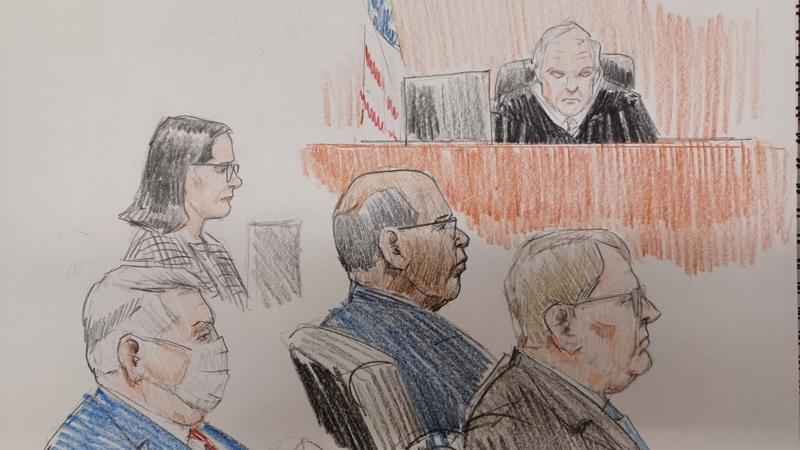(The Center Square) – A federal judge put the sentencing of four former utility executives and lobbyists on hold Thursday until after the U.S. Supreme Court decides a case involving the federal bribery statute this summer.
In May 2023, a jury convicted former state lawmaker and lobbyist Michael McClain, former ComEd CEO Anne Pramaggiore, former ComEd lobbyist John Hooker and former contract lobbyist Jay Doherty. The case involved a conspiracy to bribe former Illinois House Speaker Michael Madigan with $1.3 million in no-show jobs, contracts and payments to associates in exchange for support with legislation that would benefit the utility’s bottom line.
The four defendants were initially set to be sentenced in January, but when the U.S. Supreme Court decided to take up the case of James E. Snyder v. U.S., defense attorneys said it could upend the ComEd convictions.
The Supreme Court is expected to decide the Snyder case in June.
U.S. Circuit Judge Harry Leinenweber said he wanted to wait to see what the U.S. Supreme Court would do in the Snyder case before sentencing.
“I’m going to postpone sentencing until after the Supreme Court decision,” the judge said in a telephone conference Thursday. “It seems to me that it makes more sense to find out precisely what the Seventh Circuit case law would be before we proceed to sentencing.”
Once the U.S. Supreme Court rules in the Snyder case, the judge wants the parties to meet again and decide how to proceed.
McClain and Pramaggiore were convicted of nine counts of conspiracy, bribery and willfully falsifying books and records. Hooker and Doherty were convicted of six counts of conspiracy, bribery and willfully falsifying books and records.
At trial, prosecutors presented secretly recorded videos, wiretapped phone calls and hundreds of emails to show how the four former ComEd executives and lobbyists were “the grandmasters of corruption.”
Prosecutors said that the utility paid out $1.3 million in jobs, contracts and payments to associates of Madigan over eight years in exchange for favorable treatment on legislation in Springfield.
Defense attorneys said the four never bribed anyone and argued the conduct was legal lobbying, including efforts to build goodwill with elected officials.
Madigan, who resigned after losing the House speakership in January 2021, has been charged with 23 counts of racketeering, bribery, and official misconduct alongside McClain in a separate case that could go to trial in October. Madigan has denied wrongdoing and pleaded not guilty.
Madigan’s case also has been on pause as the Supreme Court reviews the Snyder case, which involves the former mayor of Portage, Indiana, who was convicted of accepting a $13,000 bribe.
Former Portage, Indiana, mayor James Snyder took office in 2012 at a time when he was strapped for cash. His business, First Financial Trust Mortgage, owed nearly $100,000 in payroll taxes as of 2009. And he was behind on his personal taxes. The IRS had taken money from his personal bank accounts in both 2010 and 2011.
Prosecutors contended that when it came time for the city to buy garbage trucks, Snyder rigged the bidding process to make sure the contracts went to Great Lakes Peterbilt, a trucking company owned by brothers Robert and Steve Buha. Great Lakes Peterbilt got two contracts with a total value of $1.125 million. Three weeks after the second contract, Great Lakes Peterbilt sent a $13,000 check to a defunct company that Snyder owned. Snyder then moved most of the money to his personal account. When the FBI asked about the $13,000, Snyder said it was for consulting services he provided to Great Lakes Peterbilt. Snyder was eventually convicted of bribery twice in two trials.
At issue is whether a section of the federal bribery statute criminalizes gratuities – payments in recognition of actions a state or local official has already taken or committed to take, without any quid pro quo agreement to take such actions.
Appeals courts have split on the issue, which has brought the matter to the U.S. Supreme Court.







